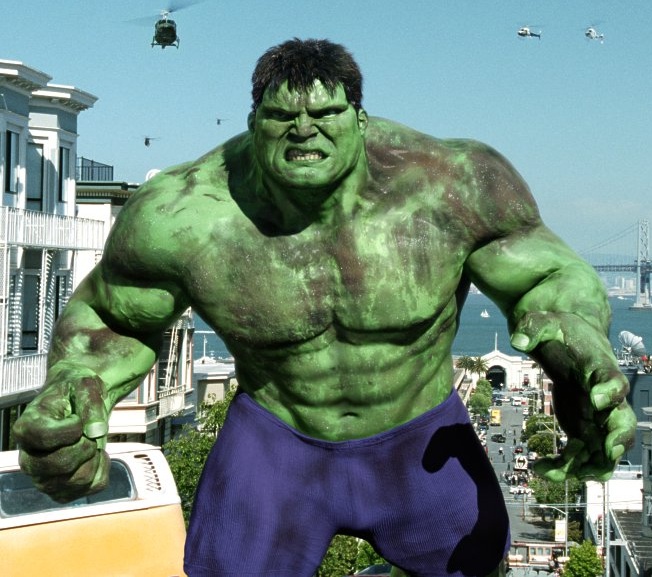Millions of radio listeners tuned in each week to hear about the exploits of the cultural phenomenon of masked men and women starting in the early 20th Century. These stories of costumed vigilantes soon spread to print and the Golden Age of Comic Books emerged right before World War II, just in time for the creation of the much more global Atomic Age. These early years brought with it the term “Super Hero”, which was officially co-trademarked by DC and Marvel in the 1960s. The criteria to be labeled as a super hero started off simple enough, but as time went on the term was debated and looser stipulations surrounded new hero's admittance into the canon. A super hero or heroine usually had a secret identity and life separate from their adventures, a code of ethics which they used in their fight with evil, extraordinary powers or tools used for the greater good, and of course a costume. So, why do we consider The Hulk a super hero?
Having a live action television show, several cartoons, and three feature length Hollywood films that depict the green giant, we are assuming that he has passed the litmus test to be listed under the same title as Superman, Spiderman, Captian America, and the Green Lantern. What The Hulk lacks is a very important element in the recipe of a super hero: an agenda. Bruce Banner has little to no control over his actions while in The Hulk form. Super heroes are known for a code of morals, and the only morals Hulk lives by is "SMASH!". In the conception of The Hulk, Stan Lee cites that the one of the influences in the dualistic aspect of Banner and his alter ego, was the story “Dr. Jekyll and Mr. Hyde” by Robert Louis Stevenson. Like Mr. Hyde, Banner's darker half can't wait to escape.
 |
| Xanax is his Kryptonite. |
While The Hulk usually doesn't harm innocents he is controlled by outside stimuli, if he is being shot at he will harm whoever is doing the shooting. He is a mad animal, controlled only by his id. Banner does not have any say so to when he will get angry, although he forewarns people when it is happening and of course he has to let it happen in order to get out of situations where a 150 lb scientist might not go up well against a tank. It is just convenient that the bad guys are the ones shooting at him, creating a need to destroy them once he becomes The Hulk, so in the end he is seen as prevailing against evil and tyrannical forces. Would Freud give hero status to the equivalent of a jacked up raging ape with the mind of a toddler? I wouldn't think so, but what do I know? I'm just a kid with a beef against an imaginary character.
I think the answer to your question lies within another question: why the purple pants? Are they purple jeans, purple corduroy or purple tough skin jeans? Dockers are comfortable, but are they really that durable? Super heroes like superman and batman are traditional characters with deep roots in a particular place they call home. Batman has Gotham City and Superman has Metropolis. The Hulk is a modern character with no place to call home and always 'on the run.' Is he a hero? Yes. His actions are good with or without specific intent. The Hulk fits the Dirty Harry Theory of justifying good ends by dirty means. Dirty Harry is not a super hero but he has super hero like qualities in my book. In short the Hulk qualifies as a super hero, however, he is not a traditional super hero.
ReplyDelete